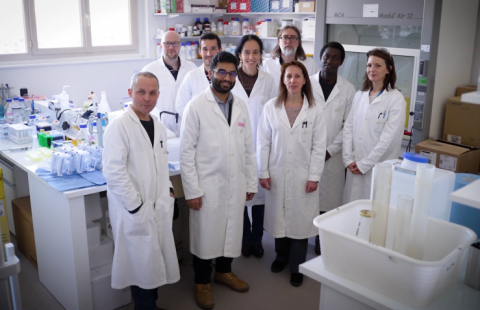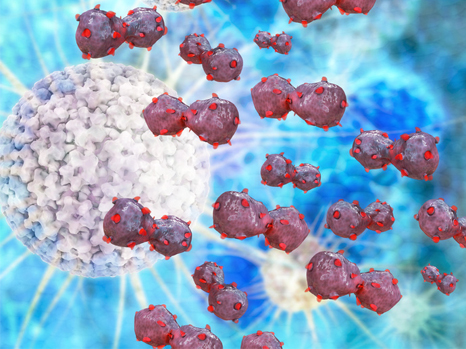
©Fotolia
The “Nuclear Domains and Pathologies” team led by Jean-Jacques Diaz, Inserm Research Director at the Cancer Research Center of Lyon (Inserm/CNRS/Université Claude Bernard Lyon 1/Centre Léon Bérard), has recently demonstrated that one of the essential components of the “cellular machinery” that produces proteins – the ribosome – is altered in tumors. The researchers have observed that these modified ribosomes function differently in cancer cells, preferentially producing proteins that favor cancer cell proliferation and survival. This discovery opens up new possibilities for the development of innovative cancer therapies that target this abnormal machinery. This research has been published in Proceedings of the National Academy of Sciences (PNAS).
The research performed by Jean-Jacques Diaz and his team focuses on a key cell function: the production of proteins via “small specialist robots” called ribosomes. Their task is to retrieve coded genetic messages and decode them in the form of active proteins. These proteins then go on to play roles in various physiological mechanisms of the body, such as the insulin involved in blood glucose control.
The abnormally high metabolic activity and proliferation of cancer cells require the production of additional protein. In a major study published in Cancer Cell[1] in 2013, the researchers identified certain ribosomal modifications that occur during the development of breast and colon cancers, and which promote the development of these diseases. In the study published this month in PNAS, coordinated by CNRS Research Officer Frédéric Catez, the team in Lyon demonstrated the mechanism by which these ribosomal modifications (2′-O-methylations) alter protein synthesis.More specifically, the researchers are interested in the role played by ribosomes in cancer.
More particularly, they demonstrate that the plasticity of 2′-O-methylation modifies ribosome functioning. This discovery reveals a new facet of the ribosome, that of a direct regulator of protein synthesis, whereas up until now it was considered to be just an effector.
This research opens up new possibilities for using ribosomes, particularly in oncology. By providing a precise description, at the molecular level, of the ribosomes in the tumor cells of various cancers, this work opens up as yet unexplored research avenues for the identification of new prognostic markers of tumor development and for the development of new therapies targeted against these specific ribosomes. These avenues are currently being explored by the team from the Cancer Research Center of Lyon (CRCL).
[1] Marcel, V. et al. Cancer Cell. 2013. 24(3):318-30)

